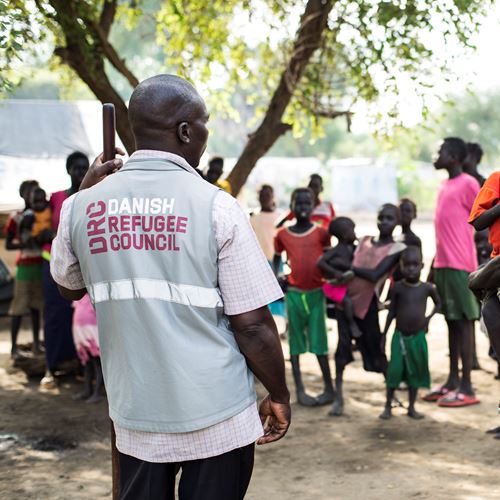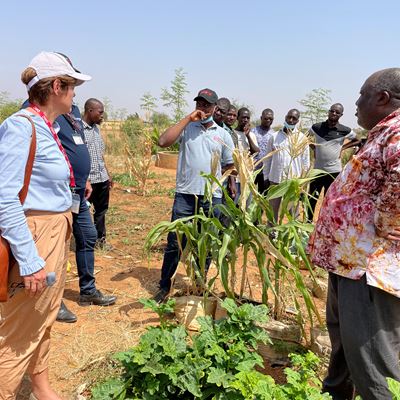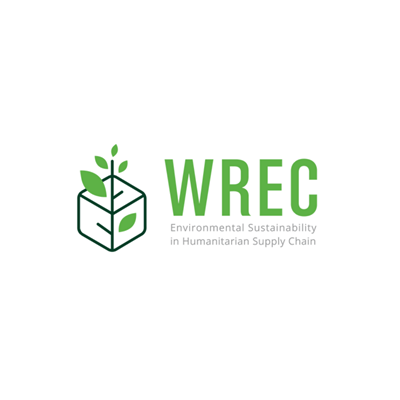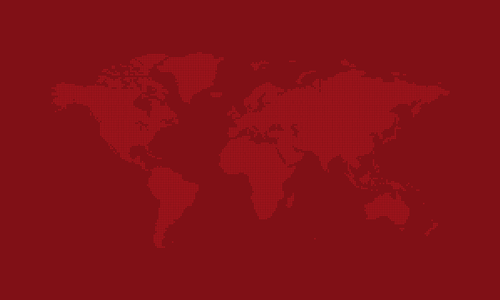30 Sep 2024
Navigating floods and building resilience through community-led climate adaptation in South Sudan
21 May 2024
Q&A on the flooding status of Dadaab Refugee Camp in Kenya
21 May 2024
Q&A on the flooding status of Kakuma Refugee Camp in Kenya
17 Apr 2024
Videos: Piloting biogas innovation in Yemen as a source of clean energy and organic fertilizer
10 Apr 2024
Climate change, water shortages, and the vital role of extending essential services
08 Apr 2024
Driving Positive Change through Sustainable Initiatives
17 Mar 2024
Solar Streams: Transforming Water Access in Khirbit Ghazaleh Using Renewable Energy
06 Feb 2024
A Day of Disaster & a Year of Challenges
07 Nov 2023
Partnership: Danish Refugee Council (DRC) enters partnership with Response Innovation Lab (RIL)
29 Sep 2023
Afghanistan: Building rural resilience to cope with climate change
29 Sep 2023
Kosovo: Vulnerable populations at risk from effects of climate change
29 Sep 2023
Poland: Reducing the carbon footprint of DRC operations
15 Sep 2023
DRC Danish Refugee Council responds to the devastating storm and subsequent flooding in Northeast Libya
12 Sep 2023
Reaction to the deadly storm in Eastern Libya
30 Aug 2023
Agri-Tech Solutions for Better Climate Resilience in Displacement Affected Areas in Iraq
22 Aug 2023
Fair recycling: A plastic recycling ecosystem in Kenya
22 Aug 2023
The scoping forestry project
01 Jun 2023
Yemen - Piloting Biogas as a Source of Clean Energy and Fertilizer in Partnership with Yemini Social Enterprise
30 May 2023
Repeated Climate-shocks shatter the resilience of communities in Ethiopia
25 Apr 2023
DRC is dedicated to the environmental protection
01 Apr 2023
Promoting Climate Change Adaptation & Resilient Practices in Southern Coastal Areas in Bangladesh
06 Mar 2023
Identifying Natural Hazards and Impacts on Displacement Affected Communities Linked to Climate Change in West Africa
28 Feb 2023
Economic and environmental well-being via garment recycling
15 Jan 2023
Mainstreaming Environmental Approach in DRC's Livelihoods Strategy
01 Dec 2022
Climate resilience building of at-risk communities in Khulna district in Bangladesh
13 Oct 2022
Energy and environment programme in Tanzania: Boosting resilience of people and the forest
17 Aug 2022
DRC launches new efforts to address climate related displacement
05 Jul 2022
DRC Burundi: Partnering with Nature and People to Find the Solutions + Learning Brief
10 May 2022
DRC sets ambitious target: Reducing 50% of our carbon emissions by 2030
20 Mar 2022
Iraqi Water Week (14-22 March): Iraq’s water situation continues to deteriorate, with devastating impacts on lives and livelihoods for thousands of Iraqis
17 Mar 2022
Video: Spring Recharge
31 Dec 2021
Reinforcing social cohesion through socio-economic opportunities and regenerative practices in Burkina Faso
30 Nov 2021
Reframing mixed migration: MMC launches the Mixed Migration Review 2021
24 Nov 2020
Former DRC Country Director becomes permaculture farmer – David Kang’ethe
20 Oct 2020
Yemeni communities becoming resilient one seed at a time
20 Oct 2020
Localizing regenerative solutions in Tanzania
20 Oct 2020
Climate resilience among Rohingya refugees and their host communities



